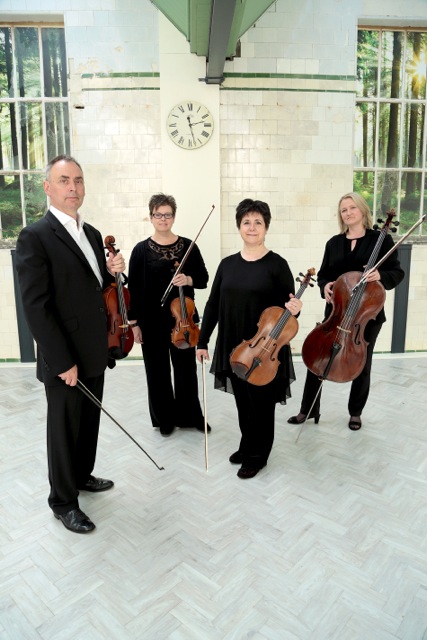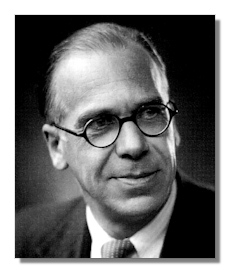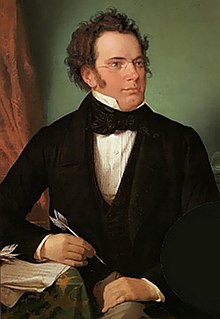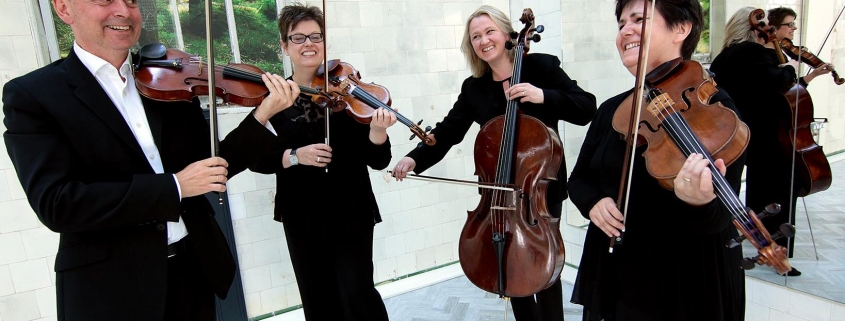THE VICTORIA STRING QUARTET by Graham Marshall
VICTORIA STRING QUARTET by Graham Marshall

played at Heywood Civic Hall
for Rochdale Music Society
The Victoria String Quartet contains some of the most experienced chamber musicians in the UK. The four players have performed together in different ensembles for many years, and they boast an impressive pedigree, having variously played in The Chillingirian Quartet, The Sorrel Quartet and the Psappha Ensemble to name just a few. The musicians are now thrilled to be playing together in this new formation to explore the rich and varied repertoire available to a string quarter. Based in Manchester, all four of the players teach at The Royal Northern College Of Music.
This offering, presented by the Victoria String Quartet, was a combination of four very experienced and celebrated string players creating a wonderful, warm sound. Benedict Holland and Catherine Yates were the violinists, Susie Mészáros was the violist and Jennifer Langridge the ‘cellist. This concert was given, recently, in the Civic Hall in Heywood, just North of Manchester in the UK.
The programme began with Mozart’s String Quartet in E flat K.428 which is one of a group of works that show the influence of Haydn’s pioneering work with the medium, and is a veritable storehouse of melodic delights and engaging musical conversations between the instrumentalists.
Three Winter Poems is a piece by William Alwyn, an English composer whose extensive production of cherished music for films is complemented by an equally distinguished output of works for the concert hall. The audience found these sound pictures of winter scenes were underpinned by a warmth of personality that made the soundscape bearable and less frosty through an intensely attractive the surface sound.
The concert ended with Schubert’s very attractive Quartet in D minor, often dubbed the ‘Rosamunde’ quartet because of the second movement’s use of a theme from the composer’s incidental music to a play of that name. In fact, the whole quartet is lavishly sprinkled with melodic fragments from Schubert´s songs and symphonies, bound together in a rich bundle of sounds.
I’d like to share with you my delight as I recently reviewed their delightful performed for our members of Rochdale Music Society
This was our 40th Anniversary Season’s second concert evening and these four local musicians of international standing each contributed their technical brilliance to delightful performances of the music mentioned above. The Victoria String Quartet brought their combined experience of decades of playing in renowned ensembles and orchestras to provide an experience which was afterwards described by one member of the audience as having been ´worth the ticket money for just for the first five minutes!´. I heartily agree. The whole evening’s music-making was on the highest level of technical and artistic delivery.

musical composer and theorist
The concert began with Mozart’s E flat Quartet written in the wake of his meeting with Haydn and of having found the influence of the older man’s music exciting and illuminating. From the first movement’s somewhat mysterious opening through the harmonious conversation between the instrumentalists that quickly develops into an elaborate and colourful tapestry of melodic phrases, to the cat and mouse chase atmosphere of the understated drama of the finale –
Mozart’s ability to entertain as well as challenge and satisfy the musical intellect of his listeners was deliciously presented in a performance of impeccable taste.

This was followed by William Alwyn’s Three Winter Poems, musical images of great clarity, brilliance and, despite their outward chill, deep warmth. With such spot-on performances, including some beautifully clear, very soft yet full bodied high notes in the first violin part, who could not have been utterly entranced by the sights of wintry landscapes, with frozen waters and sparkling snow showers ?

After the Interval there was a single work: Schubert’s Quartet in A minor, known as the ‘Rosamunde’ because of the memorable theme from his incidental music to a stage production which the composer uses as the main idea in the second movement. He also uses melodies from one or two of his songs in the other movements. These give the music its lyrical qualities, which were superbly articulated by each of the players in their turn singing out with the warmth and inner strength the music inspires despite being generally melancholic in atmosphere. (Schubert was ill and miserable at that time.) But it is not gloomy.
As the final movement’s climax to this finely structured performance made abundantly clear, the piece is life-affirming in the face of difficulties and dangers, and celebrates the power of music to emphasise the positives of human existence rather than the negatives.
The next Rochdale Music Society concert in Heywood Civic Centre will be on Saturday, February 1st 2020 at 7.30pm, when the Georgian pianist, Luka Okros, will play music by Haydn, Chopin, Rachmaninov and Liszt.
Details on the website www.rochdalemusicsociety.org.




Leave a Reply
Want to join the discussion?Feel free to contribute!